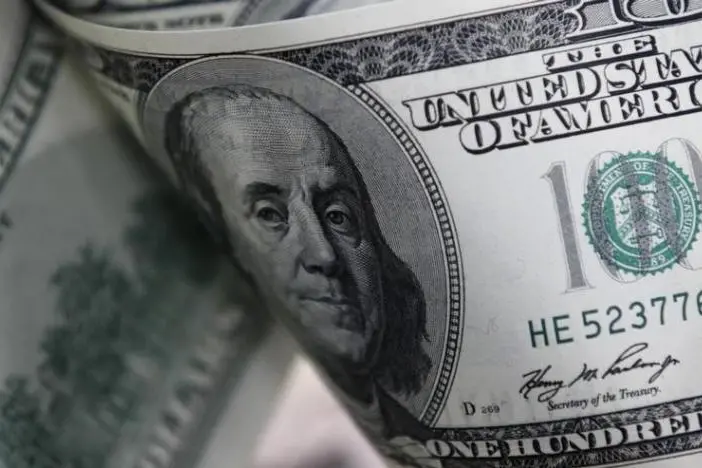PHOTO
SINGAPORE: A bruised dollar was nudged lower still in Asia on Thursday, as traders took surprisingly slow U.S. inflation as a signal U.S. interest rate rises will be all but finished by month's end.
The dollar had its worst session in five months overnight, falling more than 1% against the euro to its lowest in more than a year and notching even larger losses elsewhere.
The euro hit a fresh 15-month high of $1.1141 in early Asia trade and the yen, up 0.3% at 138.16 per dollar, was its strongest since mid-May. The U.S. dollar index fell marginally to 100.47, its lowest since April 2022.
The New Zealand dollar reached a two-month high of $0.6309 and the Aussie a three-week peak of $0.6796.
The moves were small, yet showed traders' faith the dollar has further to fall. The yuan touched a one-month high at 7.1604 to the dollar in offshore trade. Sterling and Swiss franc were testing overnight highs.
U.S. core inflation came in at 0.2% in June against market expectations for 0.3%. Headline annual CPI fell to 3% and has been dropping since hitting a peak at 9.6% a year earlier.
"Oversized CPI gains are receding into the distance, and the recent run of inflation data has been very benign," said Steve Englander, head of global G10 currency research at Standard Chartered.
"We, and increasingly the market, doubt that the Fed will hike again after the 26 July meeting," he said.
"We think the recent dollar underperformance reflects a qualitative shift in market comfort with being short dollars as the terminal Fed policy rate looks increasingly capped."
Interest rate futures showed markets have fully priced a Federal Reserve rate hike later this month, but expectations of any further increases are being wound back.
Two-year Treasury yields, which track rate expectations, dropped more than 15 basis points overnight to 4.73%.
In Scandinavia, where inflation is looking sticky and central bankers are projecting further rate hikes, currencies surged, with the Swedish and Norwegian crowns up more than 2% and eyeing gains of about 5% for the week.
In Asia the yen is up 4.8% against the dollar in five trading days and almost as much on other major crosses as short-sellers have been cleared out and market focus turns to whether the Bank of Japan (BOJ) might soon tweak its yield control policy.
Japanese government bond yields rose to multi-month highs on Wednesday, though the closely-watched 10-year yield remains at 0.46%, comfortably below the BOJ's 0.5% cap, suggesting only modest speculation on a policy shift.
Sterling sat at $1.2994, just below its overnight high of $1.3001. The Swiss franc, which hit its highest since 2015 overnight, traded just below that level at 0.8661 francs to the dollar.
Chinese trade data is due later on Thursday, along with minutes from last month's European Central Bank meeting, European industrial production data and British monthly GDP.
(Reporting by Tom Westbrook; Editing by Jamie Freed)





















